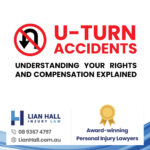Suing Your Landlord For An Accident At Your Rented Property
In the recent case of Gentle v Wright [2021] the Claimant fractured her leg and hurt her back when she slipped down some steps at the back her rental property. She argued that there were a couple of loose bricks on the steps and that she had complained to the landlord about this but that he had done nothing to fix the problem. The landlord defended the claim. He said that Ms Gentle had never complained to him and in any event the steps were not a big problem. In fact he said that the accident happened because Ms Gentle had been rushing down the steps when it was dark and that she wasn’t taking good care for her own safety.
Ms Gentle lost her case. In analyzing the evidence the Judge made a few interesting points:
- According to the Judge the duty of care owed by a landlord to a tenant is not to fix all defects in the property: the only duty on a landlord is to fix defects of which the landlord is aware (or ought reasonably to be aware). The Judge went further and said that “defect” does not mean just any problem with the property. It is not good enough to show that there is a defect that could ‘possibly’ cause an injury. Rather the duty on a landlord only relates to defects of a type that the landlord “knows makes the property unsafe for the use to which they are to be put”. In other words, the duty does not arise where something could possibly be made safer – the duty only arises if there is something wrong that makes the property unsafe.
- The Judge also noted that just because a landlord can improve the safety of a property by fixing a defect, that does not automatically impose a legal obligation on the landlord to fix it. When deciding whether to fix or not fix a defect the landlord is entitled to take into account that the tenant also has a duty to take steps to look after their own safety. The Judge pointed out that sometimes, even if there is as defect, the defect is such that it is ok for the landlord to do nothing.
- The question is really what would the hypothetical reasonable landlord do in the same circumstances. That can only be decided by looking at thing like the probability of the type of accident occurring; if an accident happened, how serious would the consequences be; what is the expense of fixing the defect etc. When all of these were considered the Judge found that backyard steps are often not perfect and that there was only a modest risk of harm. Given that the tenant knew about the broken brick the tenant also had an obligation to watch where she was going and to take care. In the circumstances the landlord had not breached his duty of care.
This case is an important reminder to those considering suing for compensation for injuries caused by a defect at a rental premises.
It is a reminder that you will need to prove things like:
- The landlord knew about the problem;
- The defect which caused your accident was not just something that “could possibly have” been made safer, but rather, that the defect “makes the property unsafe”;
- That even if you are taking care for your own safety, the defect still puts you at risk; and
- That the magnitude of the risk combined with the chance of the risk happening combined with the cost of doing something about it all balance out in favour of a hypothetical reasonable landlord fixing the problem.










